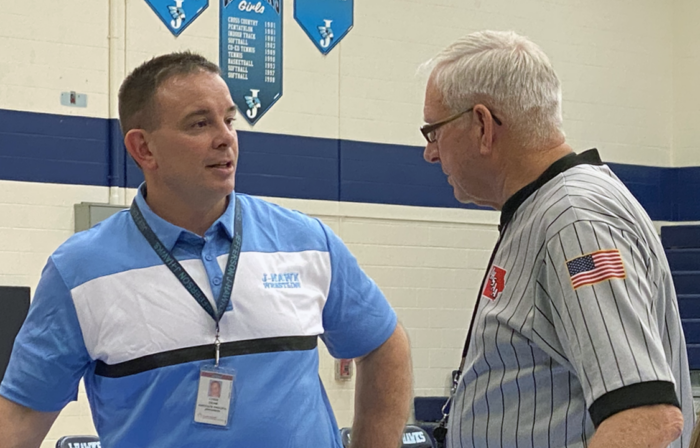Chris Deam realized he wanted to switch careers soon after he finished his accounting degree.
“I was in a cubicle doing taxes and calling down to the state wrestling tournament checking on kids,” he says. “That’s when I realized that I needed to do something else.”
Once he changed career paths, Deam taught business education and coached football and wrestling for several years in southern Iowa. He eventually moved into an administrative role, which led him to Cedar Rapids and the Jefferson High School associate principal in charge of activities position in 2012.
Deam recognizes the work that staff does to help Jefferson students and meet them where they are.
“We work really hard to reach a lot of different types of kids here,” he says. “There’s really high achievers and there’s kids who want to be high achievers that are struggling, and kids that come from families that might not know what that looks like. So we’re here to help them along.”
One of the methods that the Jefferson team utilizes may seem counterintuitive—failure.
“I get to see students understand what the process is to get to success, sometimes really high-level success. [I also] see kids fail and learn through the failure process,” he adds. “That’s where we preach through our program failure is a requirement in order to get better.”
Deam practices what is preached on getting better. He is the Leadership Training Institute state coordinator for the National Interscholastic Athletic Administrators Association. Additionally, he and the other two activities directors—Aaron Stecker at Kennedy and Grant Schultz at Washington—have earned the Certified Master Athletic Administrator (CMAA) certification.
“We are probably the only [multi-high school] district in Iowa where all the activities directors have a CMAA,” he explains. “Right now it is the highest level of certification at our national organization.”
Dean helps Jefferson students focus on graduating and reaching their highest academic potential. In fact, it’s his favorite day of the school year.
“I get to see students who have struggled and students who have done well. I always tell them throughout all four years, ‘Hey, this day is coming and it’s important, and you’ll understand it then,’” he explains. “So they walk across, and I see their faces when they get it right. I don’t care how many kids we qualify to state that year—[graduation’s] my favorite day.”
